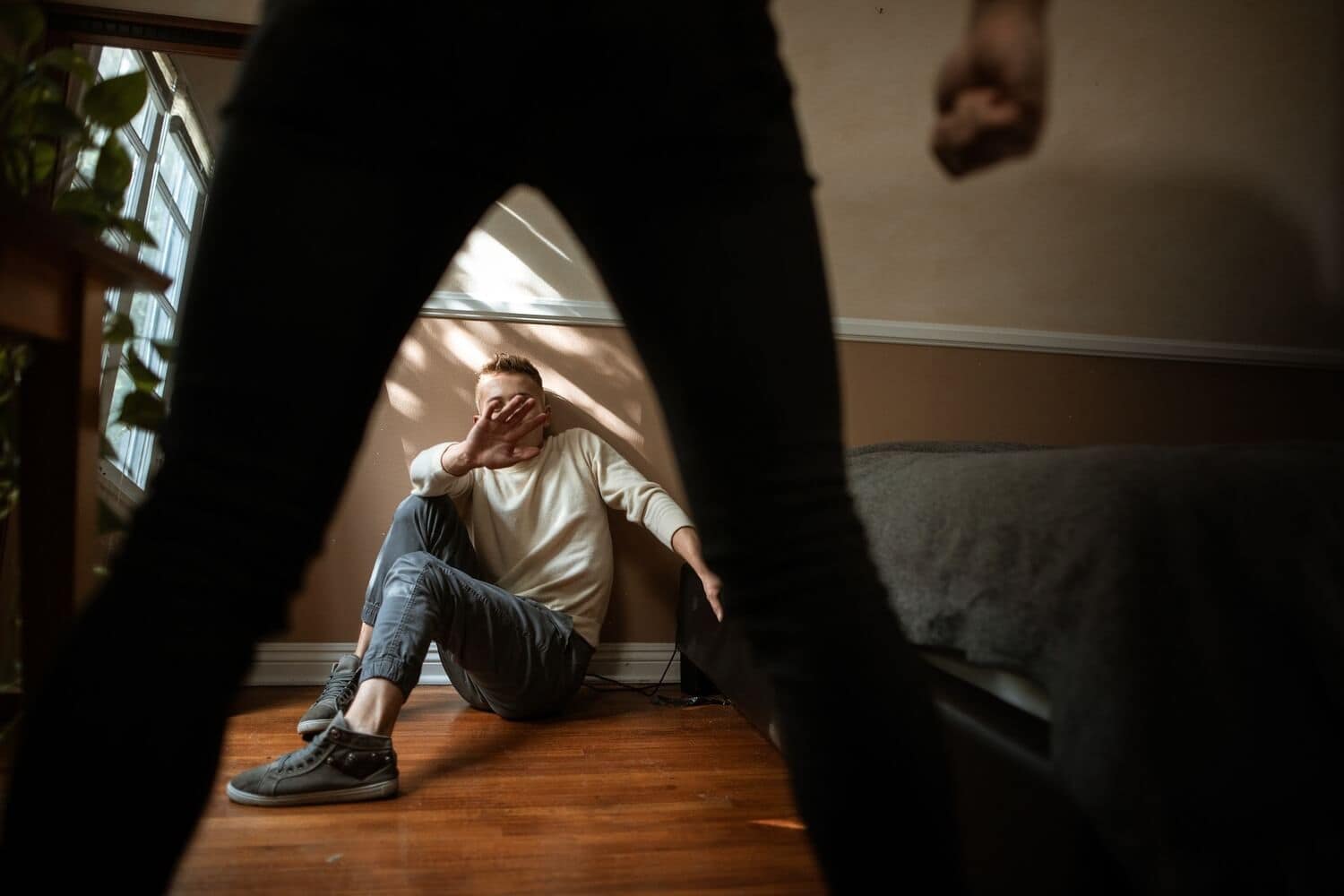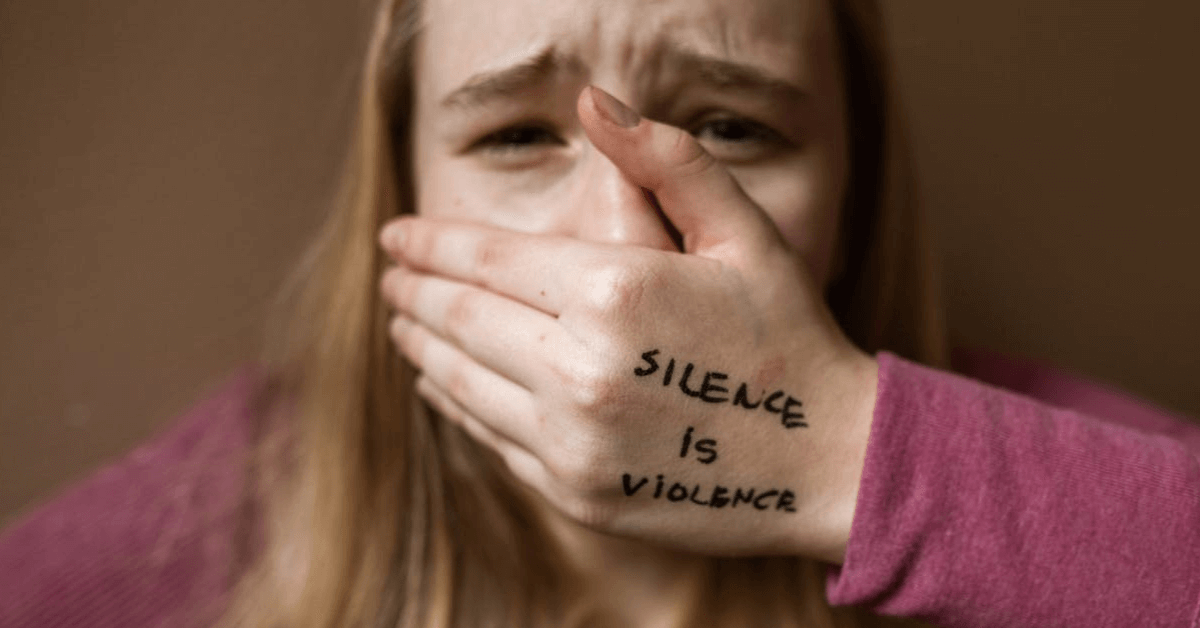A breach occurs when the respondent violates the conditions of the intervention order. This could include:
- Contacting the Protected Person: Either directly or indirectly.
- Coming Within a Certain Distance: As specified in the order.
- Other Specific Prohibitions: Such as posting about the person on social media.
Imagine two individuals were in a marital relationship that ultimately led to divorce.
After the separation, one party starts receiving threatening messages and unwanted visits from the other.
Feeling unsafe, the concerned individual decides to apply for a Personal Safety Intervention Order.
Once granted, this order prohibits the other party from contacting them, coming within 200 meters of their residence, or posting about them on social media.
If these conditions are violated, it would constitute a breach of the intervention order, and the concerned individual has the right to report this to the police.
🔑Key Takeaway: A breach can take many forms, not just physical contact. Always be aware of the specific terms of your order.
What are the Elements of Breaching an Intervention Order
Understanding the elements required to prove a breach of an intervention order is crucial for both parties. Here are the key components the prosecution must establish to successfully argue that an intervention order has been violated.
Awareness of the Order
What It Means: The accused must have been aware of the intervention order for establishing a breach. This goes beyond just being served; the accused must understand the terms and conditions laid out in the order.
Legal Requirements: The prosecution must prove that the accused was served with the order and that they understood or should have understood what it entailed.
How to Prove It: The prosecution often relies on the service receipt or an affidavit from the process server. They may also use evidence like text messages or emails where the accused acknowledges the order.
Intentional Violation
What It Means: The accused must have intentionally violated the terms of the order. Accidental or unintentional violations generally do not count.
Legal Requirements: The prosecution must prove that the accused knowingly and willingly violated the terms of the order.
How to Prove It: This could involve showing evidence of premeditation, such as text messages or emails where the accused discusses plans to violate the order.
Example of Breach of Intervention Order
To better illustrate the complexities involved in breaching an intervention order, let’s consider a fictional scenario involving Emily and Mark.
Emily went through a divorce and has an intervention order against Mark, her ex-husband, due to a history of emotional abuse.
The order explicitly states that Mark is not allowed to contact Emily, either directly or indirectly.
The Breach
One day, Emily receives a bouquet at her workplace with a note saying, “Thinking of you, always.”
The sender is anonymous, but Emily strongly suspects it’s from Mark.
She feels threatened and reports the incident to the police.
The Investigation
The police take Emily’s report seriously and begin an investigation. They find out that the flowers were indeed sent by Mark, thereby confirming that he has breached the intervention order.
The Legal Consequences
Mark is charged and has to appear in court. Given that this is his first offence, he might be looking at a fine or a good behaviour bond.
However, if he had a history of similar breaches, he could face more severe penalties, including imprisonment.
Key Takeaway: Even seemingly harmless actions like sending flowers can constitute a breach if they go against the conditions of an intervention order. Always consult legal advice to understand the boundaries set by the order.
How to Report Breach of Intervention Order
Reporting a breach of an intervention order is critical in ensuring your safety and upholding the law. Here’s a more detailed guide on how to report a breach of intervention order:
Step 1: Assess the Situation
Before you even pick up the phone, assess your immediate danger. If it’s an emergency where your safety is at risk, call 000 immediately.
Step 2: Gather Evidence
Collect all possible evidence that can substantiate your claim. This could include:
- Text messages or emails that violate the order
- CCTV footage
- Photos
- Audio recordings
- Witness statements
Step 3: Contact the Police
You can either call the police or visit your local police station. If it’s an emergency, dial 000. For non-emergencies, you can call the police assistance line at 131 444.
Step 4: File a Formal Statement
You’ll be asked to provide a formal statement detailing the breach. Be as specific as possible, mentioning dates, times, and the nature of the breach. Your collected evidence will be crucial here.
Also read: Making a Statement to Police About Domestic Violence
Step 5: Police Investigation
Once the report is filed, the police will conduct an investigation. They may interview the respondent and any witnesses. The respondent may be charged and must appear in court if there’s sufficient evidence.
Step 6: Legal Proceedings
If charges are laid, the case will go to court. You may be required to testify. It’s advisable to consult an IVO lawyer to guide you through the legal proceedings.
Step 7: Outcome
Depending on the evidence and the severity of the breach, the court may impose penalties on the respondent, ranging from fines to imprisonment.
🔑Key Takeaway: Reporting a breach of an intervention order is a multi-step process that involves proving the breach of the intervention order, contacting the police, and potentially going through legal proceedings. Each step is crucial and should be carefully and carefully approached.
What to Do If You’re Charged with Breaching an Order?
If you’re charged with breaching an intervention order, seeking legal advice immediately is essential. Here are some steps to consider:
- Don’t Make a Statement: Until you consult a lawyer, refrain from making any statements to the police.
- Understand the Charges: Know the specifics of what you’re being charged with.
- Legal Representation: Hire a lawyer experienced in family law and intervention orders.
🔑Key Takeaway: Being charged with breaching an intervention order is serious. Consult a lawyer before taking any action.
3 Common Defence to Breach of Intervention Order
Lack of Awareness
This defence to breach of the intervention order is based on the idea that the accused was not properly informed about the intervention order. In legal terms, this is often called “lack of service” or “lack of notice.”
Legal Requirements: For this defence to breach of intervention order to be valid, the accused must not have been served with a copy of the intervention order, or they must not have received a proper explanation of its terms and conditions.
How to Prove It: Documentary evidence can be used, such as the lack of a service receipt or an affidavit from a process server. Witness testimony may also be helpful.
🔑 Key Takeaway: If you weren’t adequately informed about the intervention order, gather all possible evidence to prove this point. Legal advice is crucial here.
Mistake of Fact
What It Means: This defence to breach of intervention order is applicable when the accused had an honest and reasonable belief in a set of facts that, if true, would make their actions lawful.
Legal Requirements: The accused must prove that they had a genuine belief in a fact and that this belief was reasonable under the circumstances.
How to Prove It: This often involves presenting evidence that shows why the accused had this belief and why it was reasonable. This could be text messages, emails, or other forms of communication that led to the mistaken belief.
🔑 Key Takeaway: This defence is tricky but not impossible. You’ll need strong evidence and possibly expert testimony to prove your case.
Duress
What It Means: Duress is a defence to breach of intervention order that can be used if the accused was coerced or threatened into breaching the intervention order.
Legal Requirements: The accused must prove that they were under unlawful pressure to commit the act and that there was no reasonable way to escape the situation.
How to Prove It: Evidence could include text messages or recordings of threats, witness testimonies, or any other proof of coercion. The level of coercion must be substantial, often involving a threat to life or severe harm.
🔑 Key Takeaway: Duress is a high bar to clear. You’ll need compelling evidence to prove that you had no other reasonable option but to breach the order.
Penalties for Breaching an Intervention Order
Breaching an intervention order is no small matter and can result in various penalties, ranging from fines to imprisonment.
The court takes several factors into account when determining the appropriate penalty.
For fines, the court considers the severity of the breach, any prior offences, and the accused’s financial situation.
The amount can vary widely and is often set according to specific legal guidelines.
Imprisonment is usually reserved for more severe cases and involves its own set of considerations.
These include the nature of the breach, the level of harm caused, and any previous offences by the accused.
Legal standards also guide the length of the prison term, ranging from a few months to several years.
Also read: Domestic Violence Penalties
Persistent Breach of Intervention Order in Victoria
In Victoria, a persistent breach of an intervention order occurs when an individual repeatedly contravenes the conditions of a family violence intervention order (FVIO) or a family violence safety notice (FVSN).
This behaviour is treated with significant severity under the law, as it demonstrates a clear disregard for the court’s authority and the safety of the protected person.
Under Section 125A of the Family Violence Protection Act 2008, those found guilty of persistently breaching an intervention order face harsher penalties, including potential imprisonment.
The courts take persistent breaches seriously, considering them a serious threat to the safety and well-being of the protected person.
A pattern of repeated non-compliance not only heightens the risk to the victim but also signals a lack of respect for the legal system.
The legal consequences for persistent breaches are designed to deter such behaviour and protect those at risk, with the potential for imprisonment serving as a strong deterrent.
Always Seek Legal Advice: How to Report Breach of Intervention Order
Intervention orders are complex legal instruments that require careful navigation.
Whether you’re the protected person or the respondent, understanding the intricacies of these orders is crucial.
Most importantly, always seek legal advice from intervention order lawyers to ensure you’re fully aware of your rights and responsibilities.
Director of Melbourne Family Lawyers, Hayder manages the practice and oversees the running of all of the files in the practice. Hayder has an astute eye for case strategy and running particularly complex matters in the family law system.






One Response